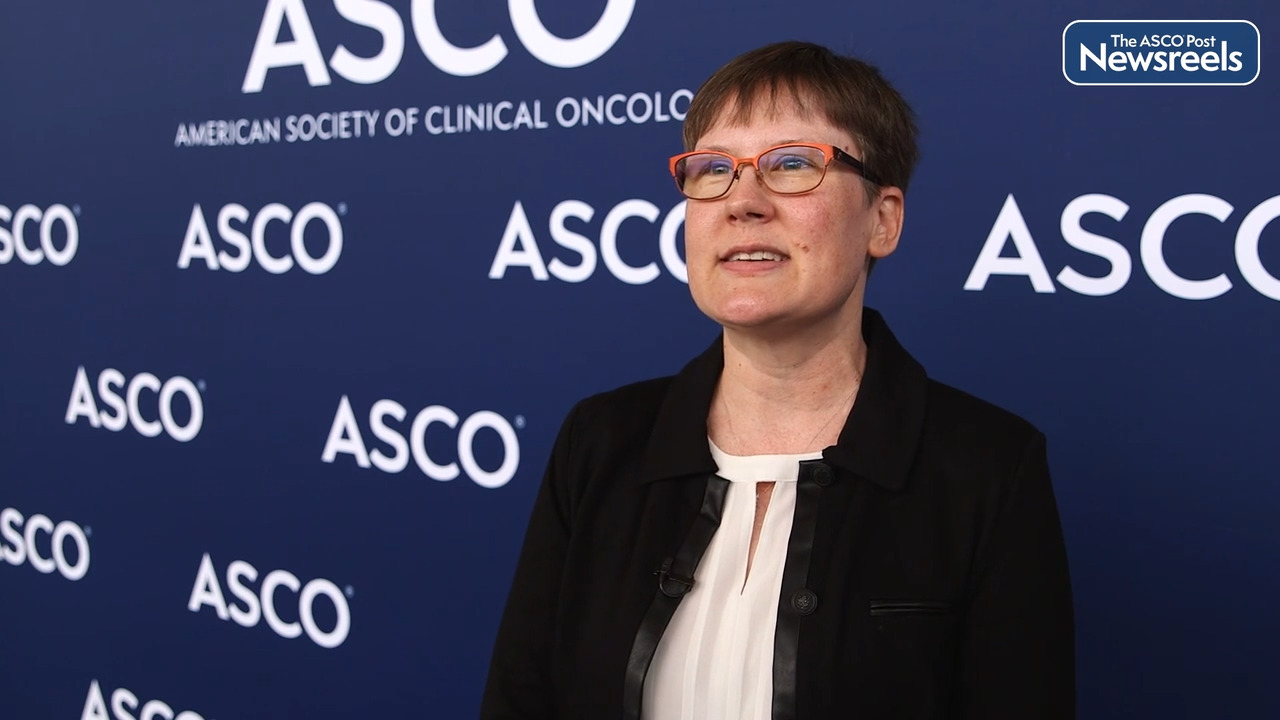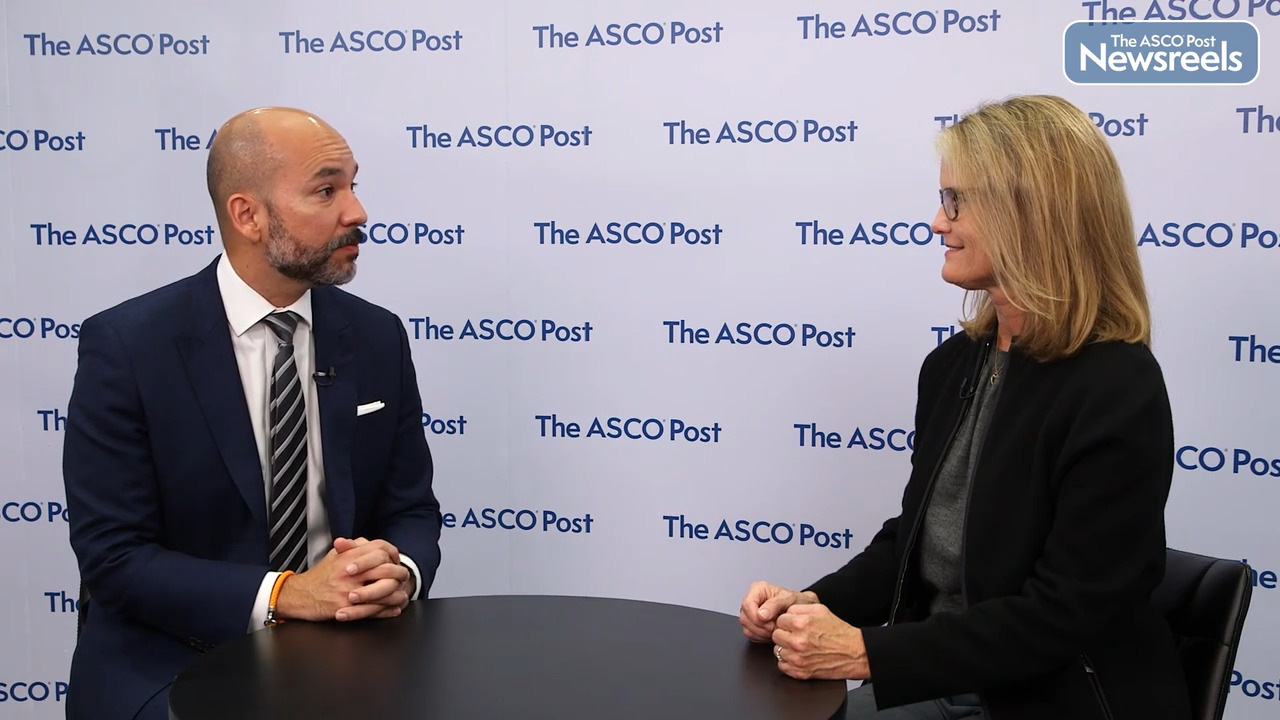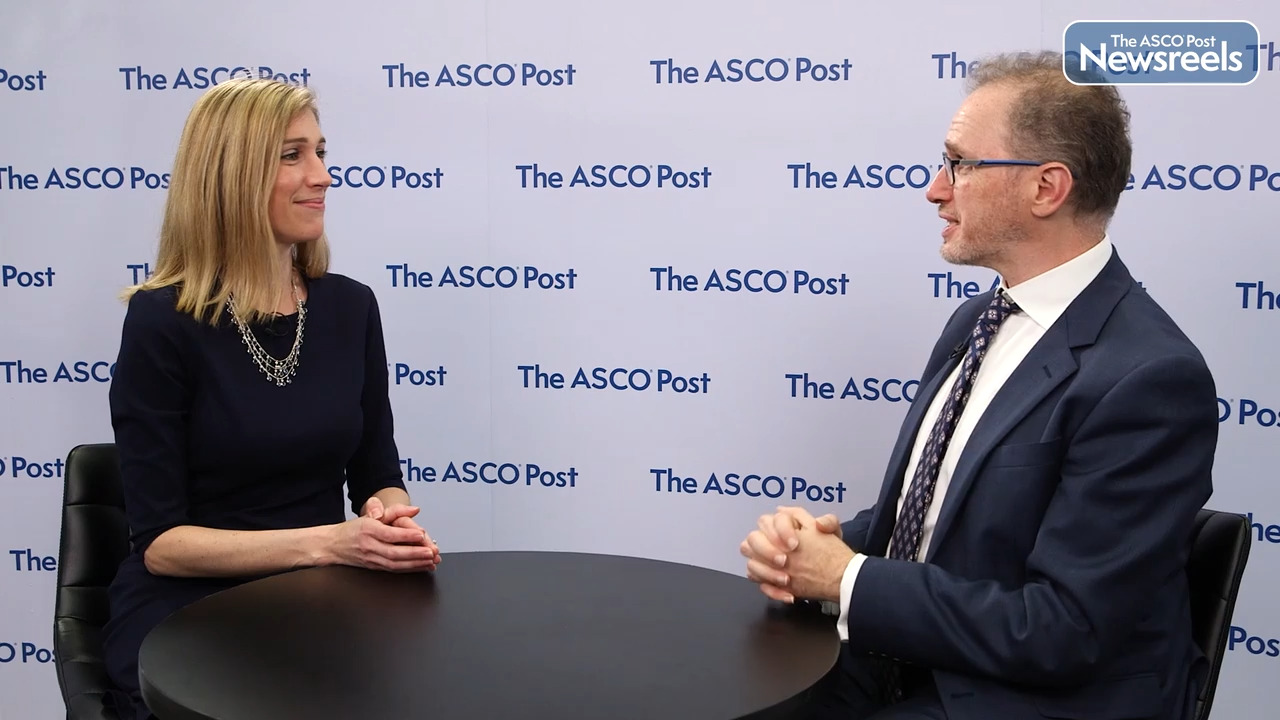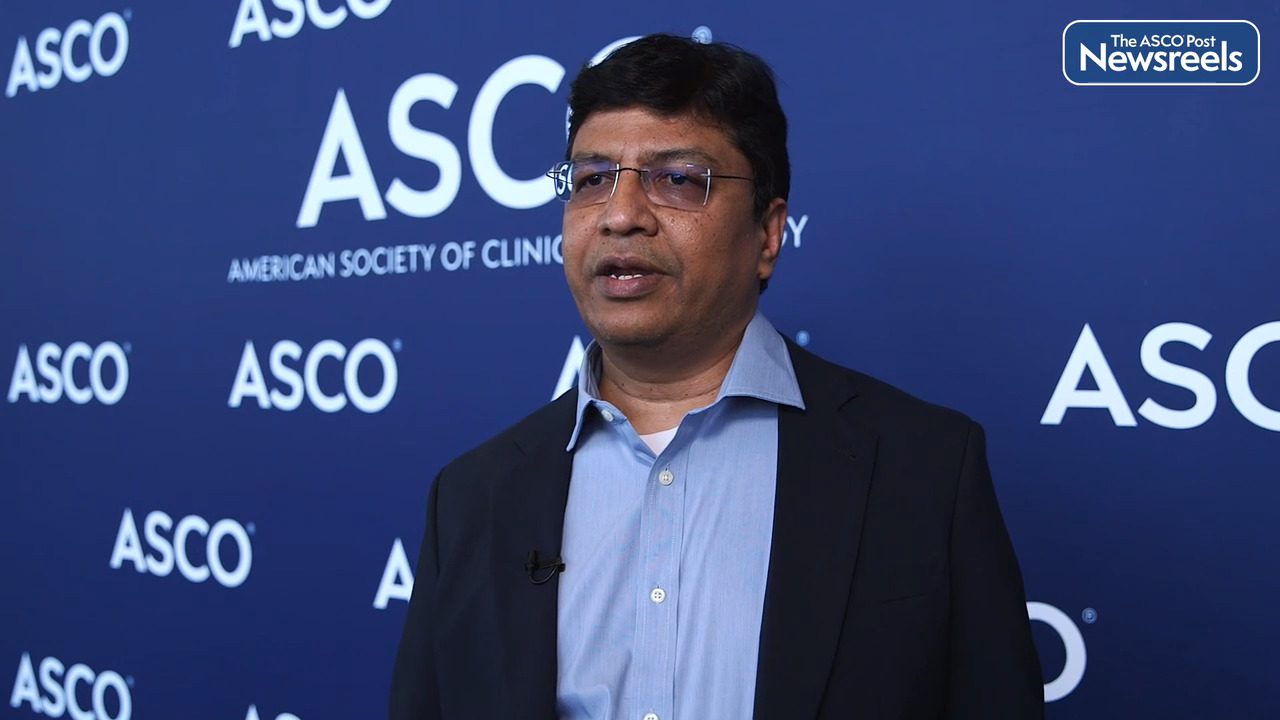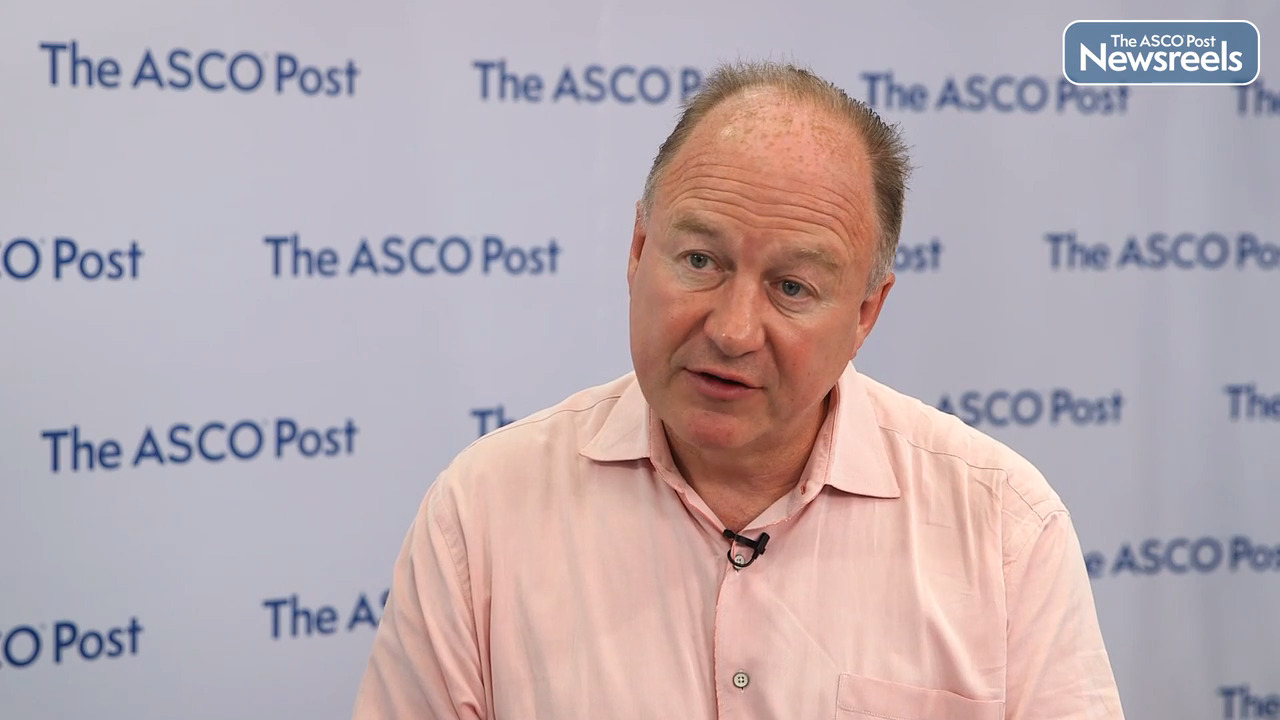Rainer Fietkau, MD, on Pancreatic Cancer: Initial Trial Results on Sequential Chemotherapy and Chemoradiotherapy
2022 ASCO Annual Meeting
Rainer Fietkau, MD, of Germany’s University Hospital Erlangen, discusses phase III findings of the CONKO-007 trial, which examined the role of sequential chemotherapy and chemoradiotherapy administered to patients with nonresectable locally advanced pancreatic cancer following standard-of-care chemotherapy (Abstract 4008).
Transcript
Disclaimer: This video transcript has not been proofread or edited and may contain errors.
So CONKO-007 study compared in a randomized Phase III trial the effect of chemoradiotherapy or chemotherapy following induction chemotherapy. We included the patients with nonresectable locally advanced pancreatic cancer. Following three months of induction therapy, restaging was performed and patients with new detected metastasis or insufficient dosage of chemotherapy were included. 525 patients were included. 366 patients were randomized.
Important, we had the following feature of the study. Nonresectability was confirmed a panel of five experienced surgeons. This was checked again following the whole therapy and surgery was recommended if an R0 resection seems to be possible. And, we succeeded, that in both arms about 36% of the patients were then treated with surgery. We think that this high number was due to the fact that surgery was often recommended in the second surgical evaluation.
The primary end point, the R0 resection, was evaluated in the 122 patients with resection. Following chemoradiotherapy, more R0 resections were possible. The rate of R1 resections was significantly lower. The OS rate of CRM negative tumor was significantly higher. Furthermore, we found significantly more complete remissions following chemoradiotherapy.
In a second analysis, for all randomized patients nearly all statistically different parameters remained significant. Complete remission rate, R1 resection rate, CRM positive or negative status, all in favor of chemoradiotherapy. Only the R0 resection rate was no more statistically different, but this did not translate into a better overall progression free survival or overall survival. But what is very important, is the effect of additional surgery. None of the patients without surgery survived five years, but 17.5% with additional surgery. Of course, these are no randomized data and are biased by patient selection, but it may show the important role of surgery of these patients.
Moreover, the best survival data we achieved for CRM or R0 resected patients was a five year survival rate of 35 to 27%. We found some hints that chemoradiotherapy improves this long term survival of surgically treated patients. Five year survival following chemoradiotherapy is 24% compared to 20% following chemotherapy alone. Of course, these results are not statistically different but may be a hint how the better R0 resection rate may potentially translate into a better survival.
In conclusion, we found that additional chemoradiotherapy to chemotherapy improves significantly the R0 resected rate, in surgically treated group but not in all randomized patients. Additional chemoradiotherapy improves the rate of R0 CRM negative resected significantly and very importantly, 36% of all randomized patients can be treated additionally with surgery, the five year survival of 17.5% compared to 0% without surgery. Overall this concept of induction chemotherapy, additional chemoradiotherapy and surgery, is visible, with a five year survival rate of 9.6% and selects a favorable subgroup of patients that has an impressive long term survival rate of up to 26%.
And the next steps in our analysis will be a further evaluation of prognostic parameters to select better patients who will benefit most from surgery and chemoradiotherapy.
The ASCO Post Staff
Carryn M. Anderson, MD, of the University of Iowa Hospital, discusses phase III results of the ROMAN trial of avasopasem manganese for patients with severe oral mucositis who are receiving chemoradiotherapy for locally advanced, nonmetastatic head and neck cancer. Compared with placebo, avasopasem manganese improved severe oral mucositis (Abstract 6005).
The ASCO Post Staff
Gilberto de Lima Lopes, Jr, MD, MBA, of the Sylvester Comprehensive Cancer Center at the University of Miami, and Karen L. Reckamp, MD, of Cedars-Sinai Medical Center, discuss phase II findings from substudy S1800A of the Lung-MAP protocol. The data showed that ramucirumab and pembrolizumab improved overall survival compared with the standard of care for patients with advanced non–small cell lung cancer who were previously treated with immunotherapy and platinum-based chemotherapy (Abstract 9004).
The ASCO Post Staff
Alicia K. Morgans, MD, MPH, of Dana-Farber Cancer Institute, and Michael S. Hofman, MBBS, of Peter MacCallum Cancer Centre, University of Melbourne, discuss follow-up results on LuPSMA vs cabazitaxel in patients with metastatic castration-resistant prostate cancer progressing after docetaxel treatment. The findings suggest that LuPSMA is a suitable option for this population, with fewer adverse events, higher response rates, improved patient-reported outcomes, and similar overall survival compared with cabazitaxel (Abstract 5000).
The ASCO Post Staff
Sriram Yennu, MD, of The University of Texas MD Anderson Cancer Center, discusses the placebo response in patients with advanced cancer and cancer-related fatigue. His latest findings show that open-labeled placebo was efficacious in reducing cancer-related fatigue and improving quality of life in fatigued patients with advanced cancer at the end of 1 week. The improvement in fatigue was maintained for 4 weeks (Abstract 12006).
Paul G. Richardson, MD, of Dana-Farber Cancer Institute, discusses phase III findings from the DETERMINATION trial, which showed that, for patients with newly diagnosed multiple myeloma, lenalidomide, bortezomib, and dexamethasone (RVd) with or without autologous stem cell transplant (ASCT) and lenalidomide maintenance to disease progression resulted in the longest median progression-free survival reported for each approach, and a highly significant difference in progression-free survival in favor of early transplant. While overall response rates were similar, rates of MRD favored early transplant also, but toxicity was greater and quality of life was transiently but significantly diminished. No overall survival advantage has been observed to date (Abstract LBA4).
